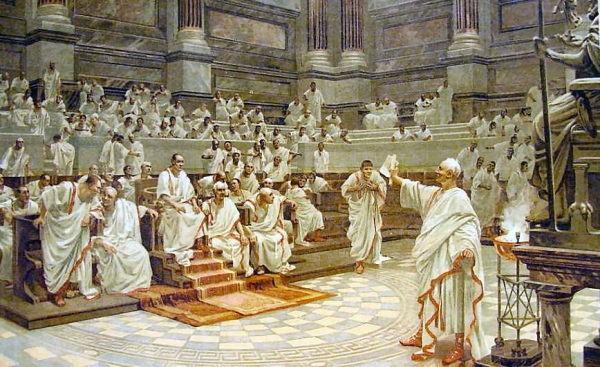But apart from that, let’s get to some words that we use every day, probably not wondering about their origin.
ALIAS
We must imply “vices”, so the full sentence is “alias vices”, “other times”, “in other circumstances”. In today's use, it means “same as”. Different from the pseudonym or nickname, it is the name by which many personalities in the history of the art and show business became famous: Sophia Loren alias Sofia Scicolone, Tintoretto alias Jacopo Robusti, Rocky Marciano alias Rocco Marchegiano, Totò alias Prince Antonio de Curtis
CARPE DIEM
“Carpe diem, quam minimum credula postero” the poet Oratius writes to Leuconoe with praise. “Live to the day and believe in tomorrow as little as possible”: Oratius has no illusions nor regrets; he is not pessimistic nor optimistic. Carpe Diem is the motto of those who, knowìing that the future does not depend on us, enjoys the present, in particular that precious and unrepeatable present that is youth.
HONORIS CAUSA
“Because of honor”. In honor of those who distinguished themselves for exceptional merits in the field of the Arts, Sciences and Letters, universities confer the honorary degree, without undergoing any examination, during a solemn graduation ceremony. Degree in Italian is “laurea”, from “corona laurea”, that is laurel crown: in ancient times it encircled the forehead of poets, victorious athletes, invincible captains.
TURBO
Turbine, storm, everything that moves in a whirlwind ride. Today with turbo we mean a type of automobile engine that according to the intentions of the manufacturer should run like the wind.
VETO
I forbid, I do not want, I oppose. In the Roman public law, it was the faculty of opposition granted to magistrates and tribunes (public officials elected by the common people), by which they blocked proposals of law contrary to the interests of the plebs. But sometimes the political game led them to use the veto in favour of the aristocratic class. And finally, a famous sentence that you can see carved on several monuments: SPQR, “Senatus PopulusQue Romanus”, “the Senate and the Roman People”. This abbreviation contains the binomial that legitimized the decrees of ancient Rome. The Senate was an assembly of men known for their experience and balance (from “senex”, old), chosen in the early centuries exclusively among aristocrats.
Vale (see you soon).

